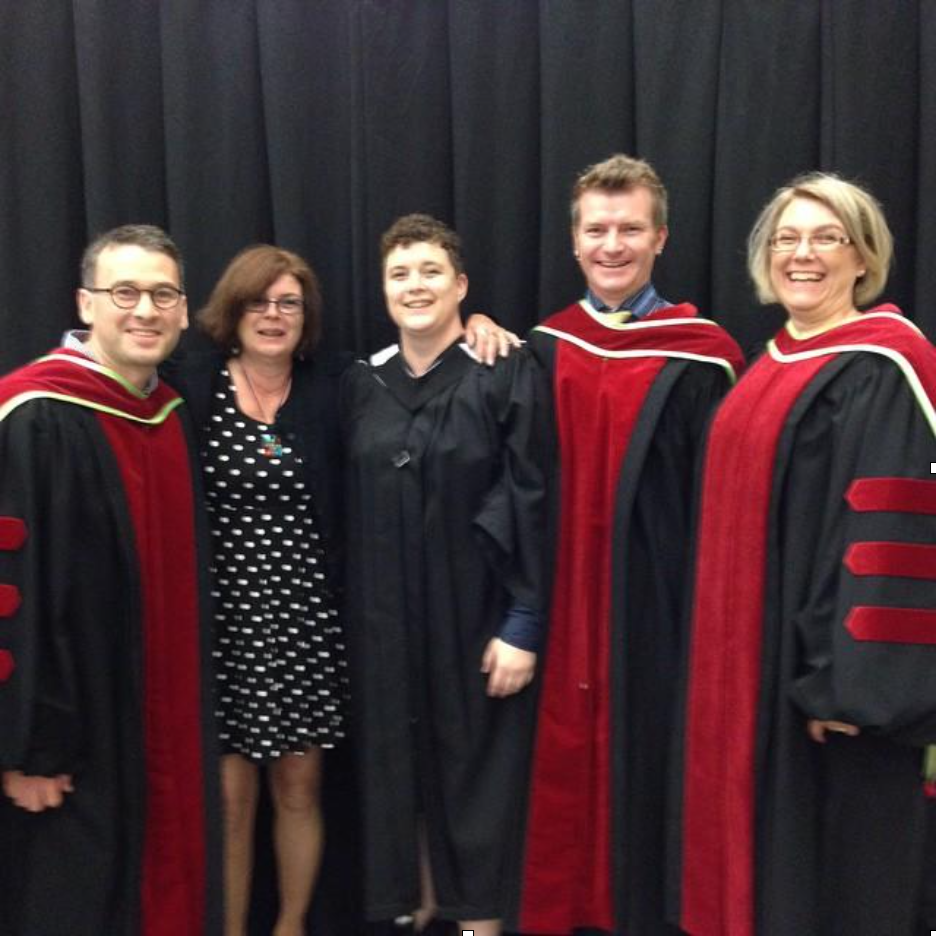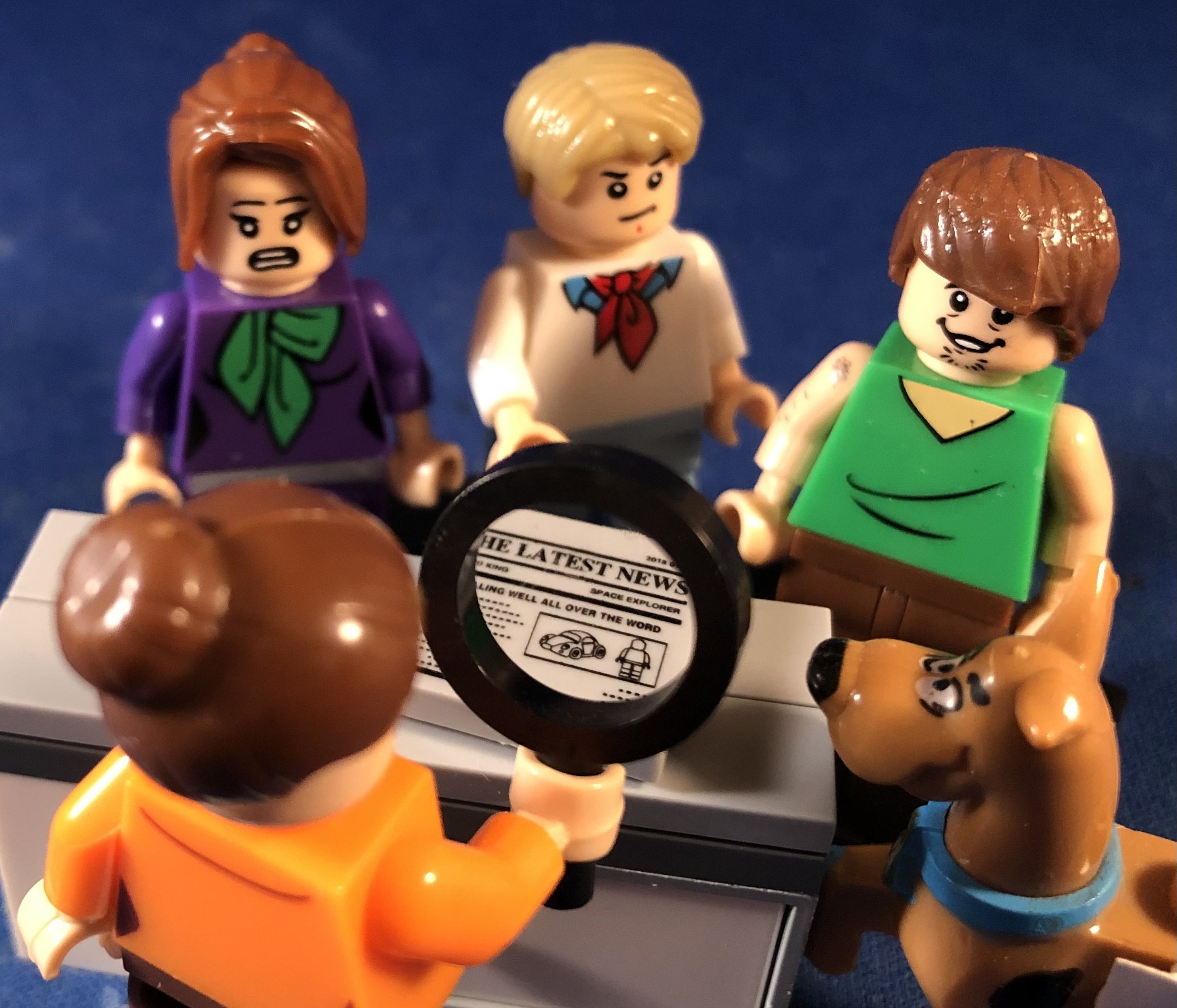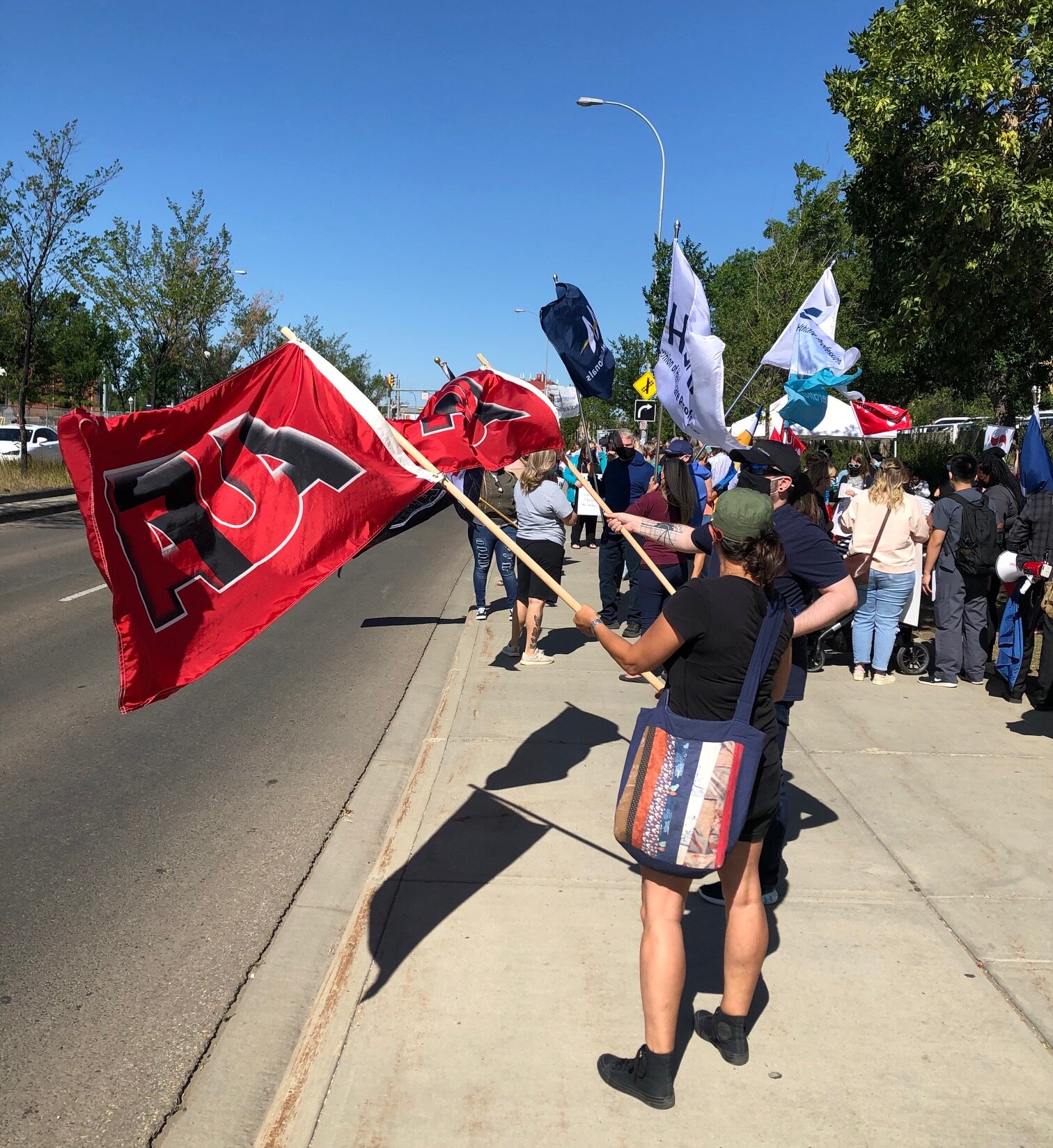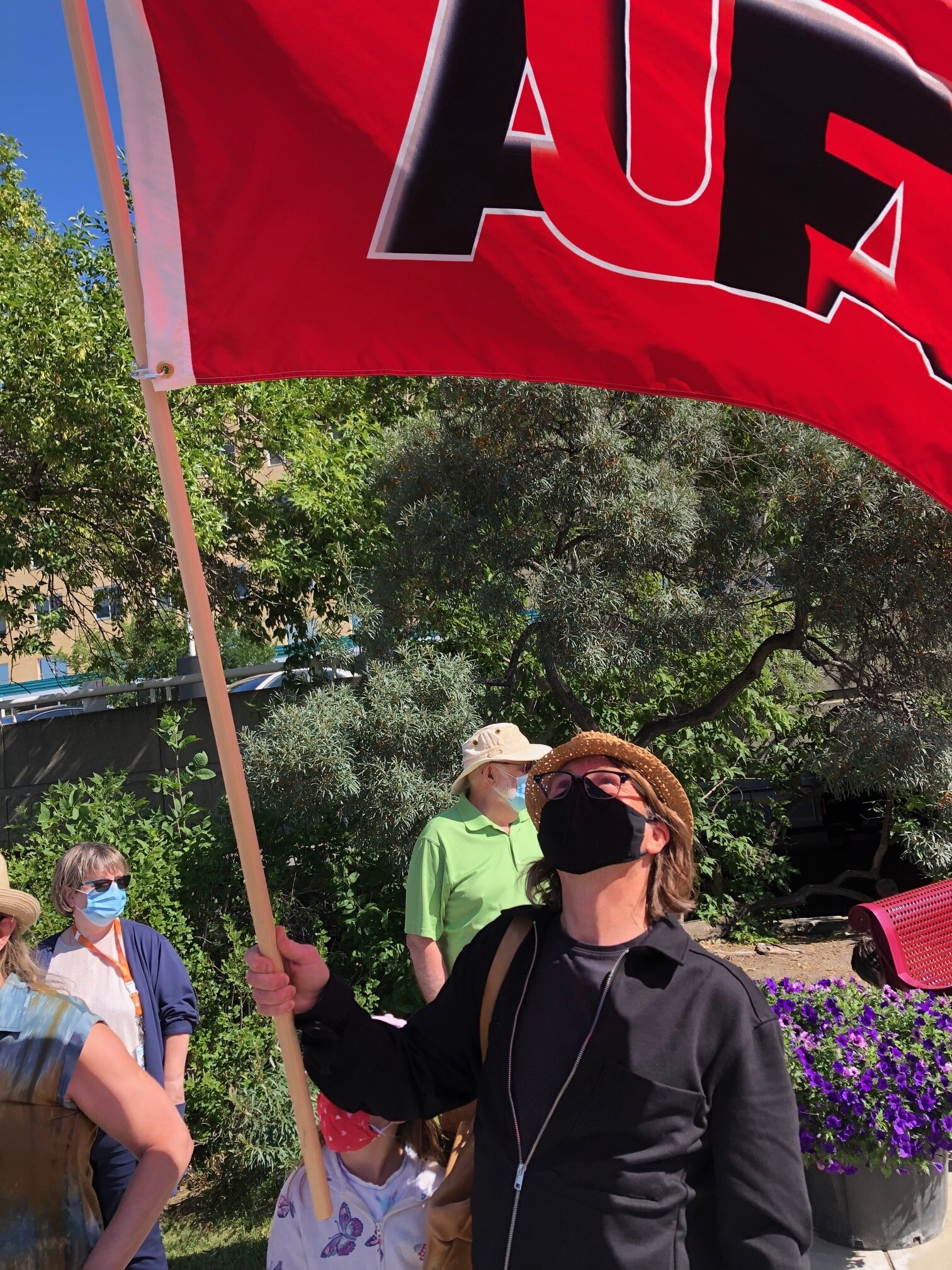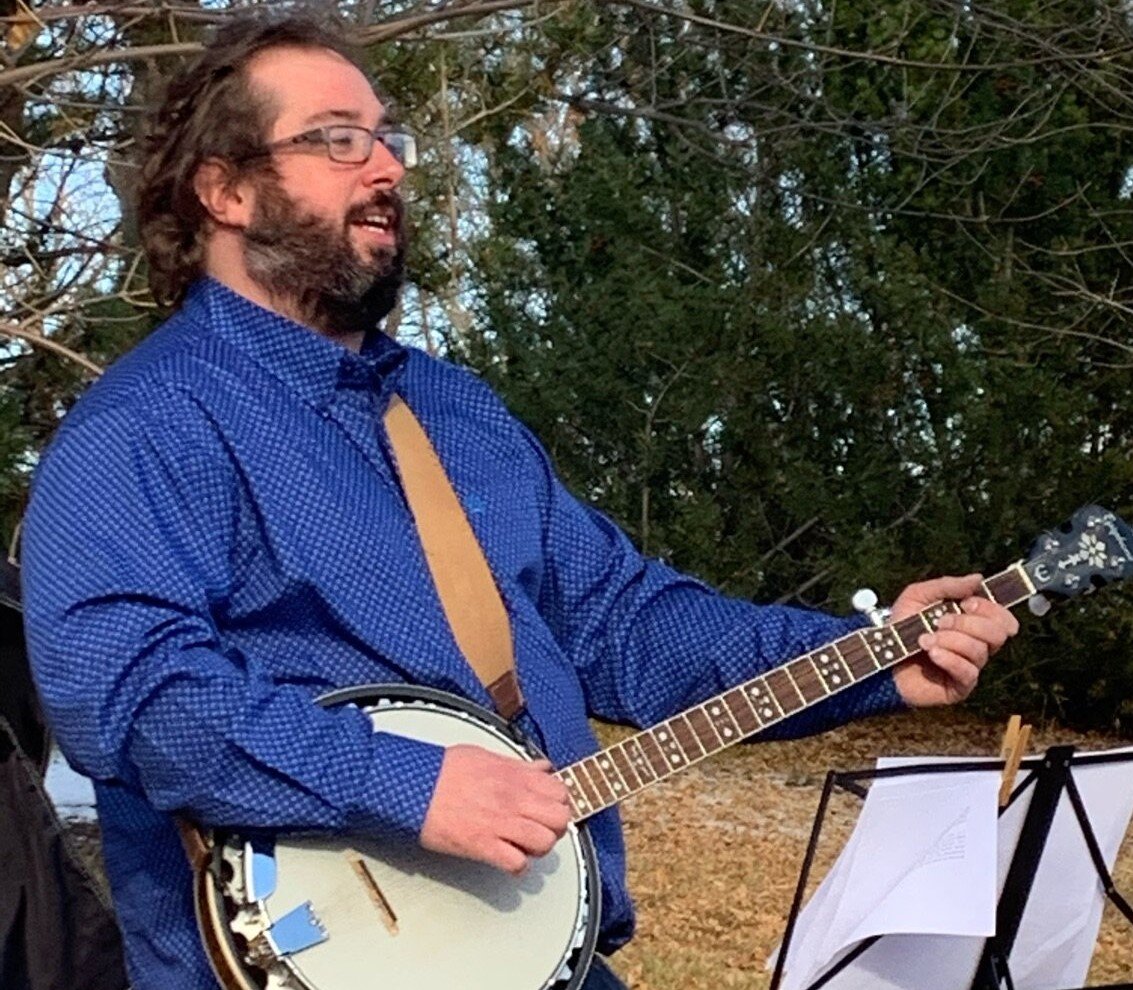Guest post from Mark McCutcheon
Sarah Mann, a longtime member of the AU community, has died. Most recently she was a CUPE Tutor in Labour Studies, but she completed two MAs, one with MAIS, the other at Brock with Dr Margot Francis and RA work for Dr Josh Evans (U of Alberta). Before that, I’d supervised her undergrad English studies. She won many if not most student awards AU offers: she won the 2011 Roberts Memorial Award, for undergrad feminist research, for her essay “Fucking Media: Sex Worker Representation and Resistance in Digital Culture.” To borrow words from Jane Arscott’s recent tribute, losing Sarah is a “bittersweet reminder of AU at its best”; she was, “one of our own.” Her loss leaves a crater in this place. I am destroyed.
As a MAIS student, Sarah worked as my research assistant. Her own grad research used AU’s own social network site, the Landing, to publicly research and archive the contents of the groundbreaking lesbian porn magazine On Our Backs. Sarah presented on her research as the first student contributor to the Faculty’s long running research talk series. Sarah was pursuing a SSHRC-funded PhD at Laurentian and teaching at Brock and Laurentian at the time of her death. We kept in touch, I was always writing reference letters for her and I was thrilled when my AU colleague Bob Barnetson made it possible for Sarah to teach here.
A favourite anecdote about Sarah’s graduate research is that, being publicly available online, her work drew interest from a prospective student from halfway round the world. This student wrote to me asking to take the ‘sex course’ I was apparently teaching. To illustrate their credentials, this person sent several photos of themselves doing nude yoga. But the best part is that all these inquiries—and nudes!—were going first to then-AU President Frits Pannekoek, whose office then relayed them to me.
Sarah was a vital presence in Facebook, where she organized a creative writing group for pandemic coping; her constant updates are how I learned she had been adopted (informally or officially, idk) by an Indigenous family in Sudbury, to help her while she studied at Laurentian. [hope i got this detail right—ed.]
But socials and correspondence are how I also know just how precariously Sarah lived, not by choice, of course, but because poverty, and because personal challenges—barriers and troubles she talked about openly but also, critically, understood as structural challenges, systemic failings of underfunded health care and social services. These formed an important focus for her PhD work, on the mental health needs and supports at Canadian universities.
Dr Francis, Sarah’s mother and I have begun working together on plans to publish and archive Sarah’s extraordinary scholarly and critical writings. Sarah was an excellent writer; she also knew the importance of organizing work. To coordinate these efforts and ensure they give appropriate consideration to the family’s wishes and interests, and to help these projects benefit and strengthen the communities and causes that were important to Sarah, Margot and I invite Sarah’s colleagues, collaborators, and community of creatives to get in touch (about publishers, publishing process, archival practice, etc.) and to get updates on our work (and others’ projects, works we’re trying to locate, opportunities to collaborate, etc.). We’re reaching out via Facebook and by email: howtonotsuckatwriting@proton.me, a secure email we’ve named after her funny, wise essay writing guide, https://howtonotsuckatwriting.ca, which you really must read.
“Queer research is about saving queer lives,” Sarah wrote in 2012, in a debate amongst AU faculty and students over what “safety” means, and for whom, in open learning spaces.
The thrust of my research is that the exclusion of certain queer bodies from public spaces (like this one) is 1) linked to an extraordinary amount of violence that those same queers experience on a daily basis and 2) decided on the basis of how class, racial, gendered and other sexual-social statuses mark some bodies and images as particularly disruptive in relation to heteronormative standards. I would be happy—delighted, even—to talk at length with anyone who is curious about how the heteronormative standards for "safety" from the kinds of sexuality that are imagined as disruptive in fact make a great many poor, trans, racialized, and women queers very unsafe.
Sarah, we intend to carry on this conversation, by celebrating your work, and by sharing and connecting more with the communities you were so lovingly building a better future for.
Rest in Power, Sarah.
Both photos are from Sarah’s MAIS graduation in Athabasca on June 12, 2015.
The photo shows from left to right; Joshua Evans, Janyce Mann (Sarah's mom), Sarah Mann, Mark McCutcheon, FHSS Dean Veronica Thompson. Everyone is close together, smiling, standing in front of a black curtain. Joshua, Mark, and Veronica are wearing their red and black PhD regalia and Sarah is wearing her Master’s graduation regalia.
The photo shows Sarah Mann and Mark McCutcheon standing next to each other and smiling. Sarah has a nametag around her neck. There is a large flower arrangement behind Mark and an Athabasca Unversity banner behind Sarah.
Link to the Go Fund Me campaign: https://www.gofundme.com/f/paying-tribute-to-sarah-mann
Link to the AU Hub article: https://news.athabascau.ca/faculty/faculty-of-humanities-social-sciences/in-memoriam-sarah-mann/
Link to the obit with funeral info: https://www.simplewishesnorth.com/obituary/Sarah-Mann
